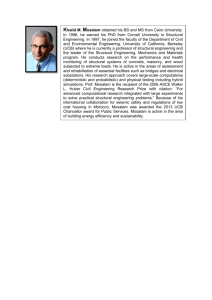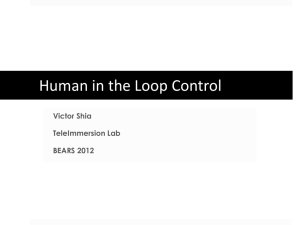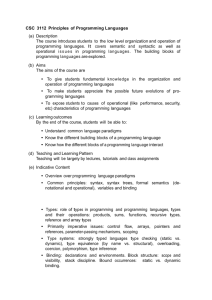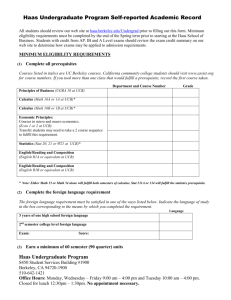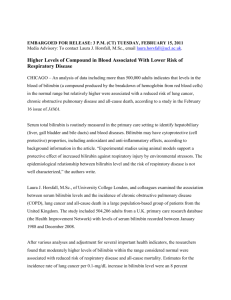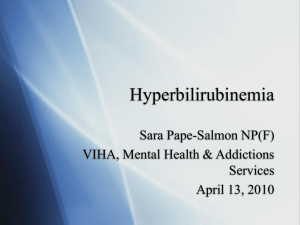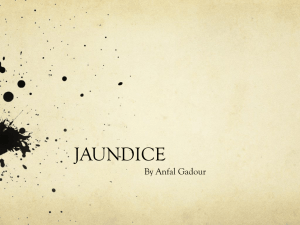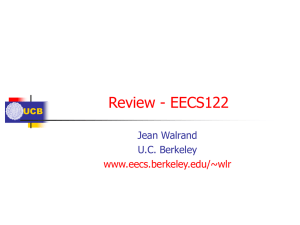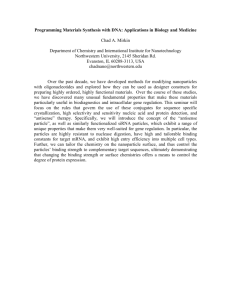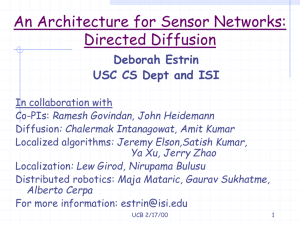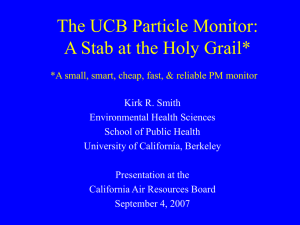Text in black Times New Roman font
advertisement
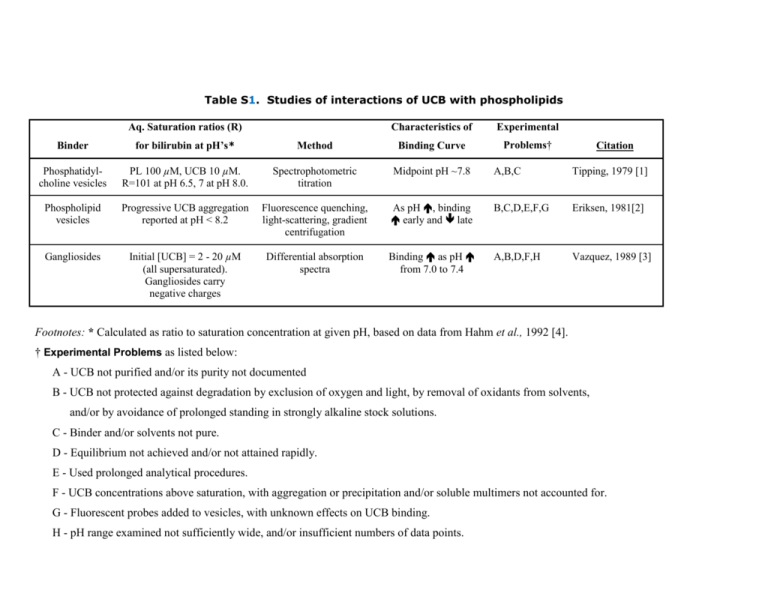
Table S1. Studies of interactions of UCB with phospholipids Aq. Saturation ratios (R) Characteristics of Experimental Problems† Binder for bilirubin at pH’s* Method Binding Curve Phosphatidylcholine vesicles PL 100 µM, UCB 10 µM. R=101 at pH 6.5, 7 at pH 8.0. Spectrophotometric titration Midpoint pH ~7.8 A,B,C Tipping, 1979 [1] Phospholipid vesicles Progressive UCB aggregation reported at pH < 8.2 Fluorescence quenching, light-scattering, gradient centrifugation As pH , binding early and late B,C,D,E,F,G Eriksen, 1981[2] Gangliosides Initial [UCB] = 2 - 20 µM (all supersaturated). Gangliosides carry negative charges Differential absorption spectra Binding as pH from 7.0 to 7.4 A,B,D,F,H Vazquez, 1989 [3] Citation Footnotes: * Calculated as ratio to saturation concentration at given pH, based on data from Hahm et al., 1992 [4]. † Experimental Problems as listed below: A - UCB not purified and/or its purity not documented B - UCB not protected against degradation by exclusion of oxygen and light, by removal of oxidants from solvents, and/or by avoidance of prolonged standing in strongly alkaline stock solutions. C - Binder and/or solvents not pure. D - Equilibrium not achieved and/or not attained rapidly. E - Used prolonged analytical procedures. F - UCB concentrations above saturation, with aggregation or precipitation and/or soluble multimers not accounted for. G - Fluorescent probes added to vesicles, with unknown effects on UCB binding. H - pH range examined not sufficiently wide, and/or insufficient numbers of data points. References 1. Tipping E, Ketterer B, Christodoulides L: Binding to egg phosphatidylcholine of some organic anions (bromsulphophthalein, oestrone sulphate, haem and bilirubin) that bind to ligandin and aminoazo-dye binding protein A. Biochem J 1979, 180: 327-337. 2. Eriksen EF, Danielsen H, Brodersen R: Bilirubin-liposome interaction. Binding of bilirubin dianion, protonization and aggregation of bilirubin acid. J Biol Chem 1981, 256: 4269-4274. 3. Vazquez J, Ortega G, Valdivieso F, Mayor F, Jr.: Interaction of bilirubin with gangliosides. J Biochem (Tokyo) 1989, 106: 139-142. 4. Hahm JS, Ostrow JD, Mukerjee P, Celic L: Ionization and self-association of unconjugated bilirubin, determined by rapid solvent partition from chloroform, with further studies of bilirubin solubility. J Lipid Res 1992, 33: 1123-1137.
